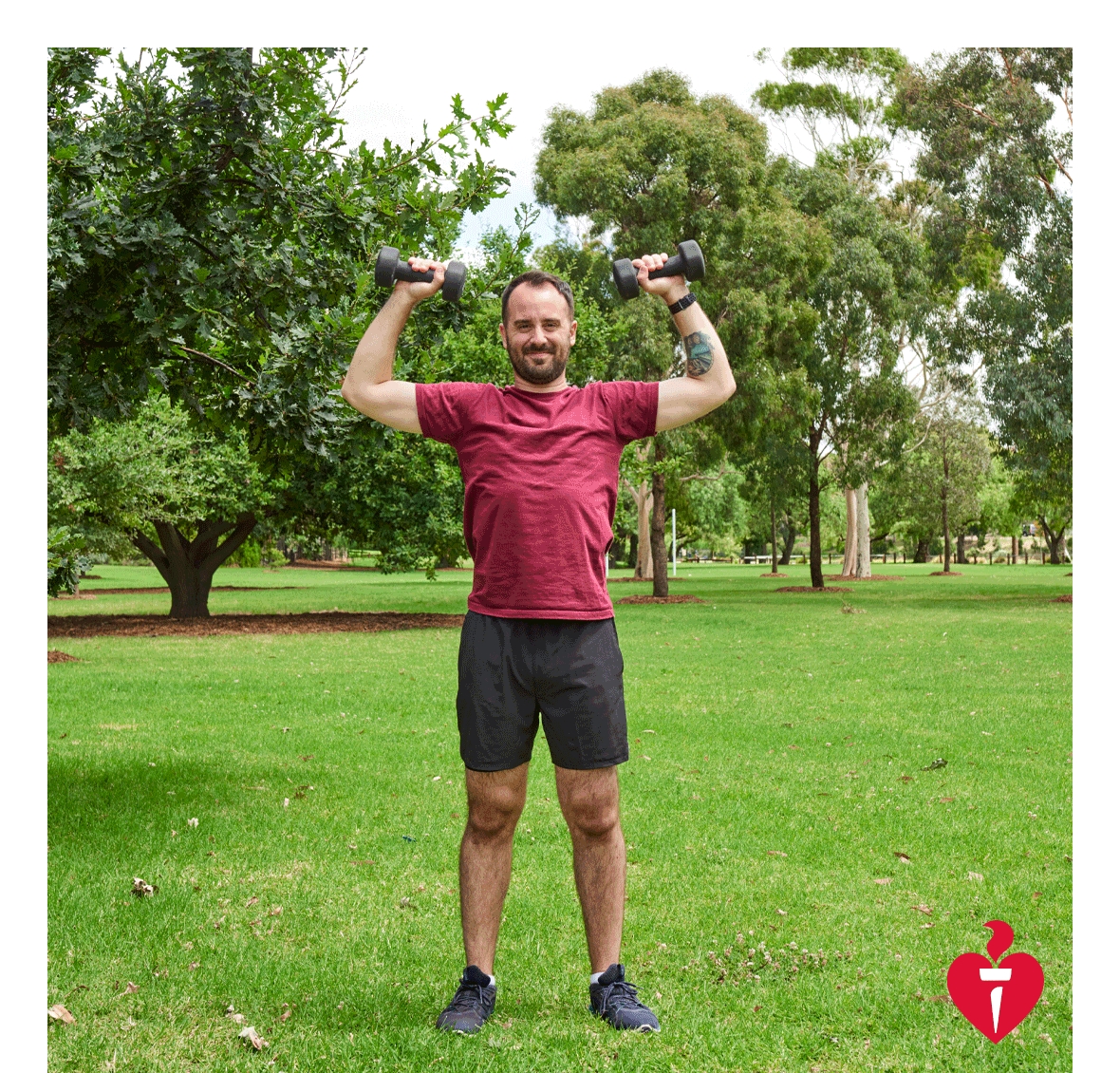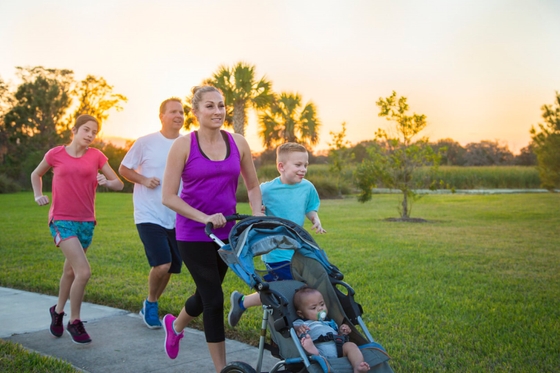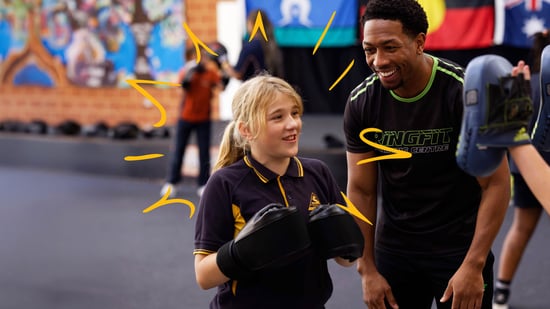G’day muscles: how strength training impacts your heart
Blog: 15 March 2023
Strengthen your way to a healthy heart by taking on the Beating Hearts Bootcamp challenge
You don’t need us to tell you that exercise is good for you. We all know that exercise benefits our mental, physical, and emotional health. Adults are recommended to include 50 minutes or more of cardiovascular exercise in their week (that’s 30 minutes at least 5 days per week) to achieve these benefits, however... A key exercise that many of us are missing that is great for our health is strength training. As the name indicates, strength training increases your muscle size and strength. Studies have also shown that strength training can improve mental health, sleep, bone density and can help prevent falls. Evidence-based guidelines recommend that Australians should complete strength training at least two days per week. But what is strength training, and what does it do specifically for your heart health, blood vessels and your body?
What is strength training?
Strength training, sometimes called resistance training or weight training, are exercises that involve the use of weights, bodyweight or resistance bands. While lifting weights certainly qualifies as strength training, some easy at-home examples of strength training can include bodyweight exercises like push-ups, squats, and lunges. The weight used can be a variety of things, even a can of beans from the pantry or a bottle of water. Strength training can also occur as part of your daily routine – like carrying your groceries, lifting a child, or working in the garden. You might be surprised how easy it is to introduce some simple strength training into your everyday life. Walking up stairs rather than taking the escalator can strengthen your legs. Cycling, swimming and doing yoga can help strengthen many muscle groups in your legs, arms, stomach and back. Some people may begin strength training as part of cardiac rehabilitation after a heart event too.
Increased strength reduces your risk of cardiovascular disease
So, why do we say that strength training is so great for your heart, blood vessels and body?
Increased strength has been shown to reduce your risk of cardiovascular disease. Specifically, a reduced risk of heart attack, stroke and heart disease-related death. Yes, that’s right…strength exercises can help you live longer! Strength training also has a positive impact on blood pressure and cholesterol.
Combining strength training with aerobic exercise (or ‘cardio’) can increase the overall benefits to your heart. So combined with a healthy diet and regular aerobic exercise, you can strengthen your way to a healthy heart.
The evidence is clear – strength training is good for us. Especially for your heart. But many of us find it hard to start. There are so many options, and it can be a bit overwhelming.
So, how do I start?
Luckily, the Heart Foundation has the solution for you! Introducing – the Heart Foundation’s Beating Hearts Bootcamp!
Taking place during April, this circuit-style challenge will help you tackle 30 different strength exercises across the month. Created by our Heart Foundation Accredited Exercise Physiologists, the exercises are offered in beginner and advanced styles suitable for all skill and ability levels. They’re quick and easy, and don’t require any special equipment! The challenge will introduce the exercises gradually – one each day via its designated Facebook group. We will provide you with support and encouragement to keep you motivated along the way, as you strengthen your way to a healthy heart! Some of the exercises included are squats, lunges, push-ups, star jumps and crunches.
If you choose to also register for our fundraiser as part of the challenge, you will receive a free welcome pack –including your exercise plan and a Beating Hearts Bootcamp T-Shirt. You will be helping the Heart Foundation fund the latest breakthrough research to solve some of the heart’s biggest problems, from diagnosis and prevention to reducing hospitalisation and improving care.
It is a fun and easy way to get moving and gain strength. Join with family and friends, or get your work colleagues out to the park in your lunch break. Why not use the Facebook community support group to help motivate you through your heart and body strengthening journey! For more information, visit https://www.doitforheart.org.au/event/beating-hearts-bootcamp-challenge/home
This is your opportunity to do something for your own heart, while raising money for other peoples!
Missed out on the bootcamp or want additional support to get you moving after the challenge? Try our FREE Heart Foundation Personal Walking Plans. You will receive your own walking plan plus strength and flexibility exercises. Our instructional videos and motivational messaging can help you to build up your activity over the 6 weeks to meet the Australian Physical Activity guidelines, moving you on your way to a stronger and healthier heart and body!
You might also be interested in...

Seven tips for staying healthy over winter
Whether you’re seeking winter sun in the north, or trying to stay warm in the south; it’s important to keep up your healthy eating habits and get your 30 minutes of physical activity a day.

Get your family moving
Get your kids active and set them up for healthier habits into adulthood.

Active Australia Innovation Challenge
Grants of up to $50,000 for innovative programs in schools, universities, or community groups.
Last updated05 March 2024